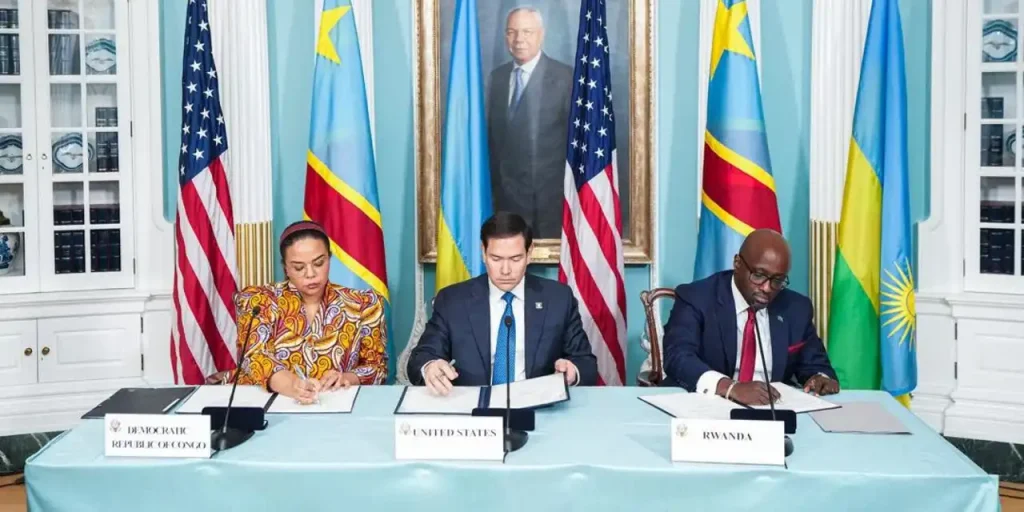The Democratic Republic of Congo (DRC), Rwanda, and the U.S. State Department on Wednesday, June 18, 2025, jointly announced that a landmark peace agreement will be signed in Washington on June 27 to halt the escalating conflict in eastern Congo.
The accord aims to end decades of violence, particularly driven by the Rwanda-backed M23 rebels, and address one of the world’s most severe humanitarian crises, which has displaced over 7 million people.
M23’s Escalation and Rwanda’s Role
The conflict surged in January 2025 when M23 rebels, reportedly supported by approximately 4,000 Rwandan troops according to U.N. experts, seized the strategic city of Goma, followed by Bukavu in February.
Congo has consistently accused Rwanda of fueling the insurgency, with M23 being one of over 100 armed groups vying for control in the mineral-rich eastern region.
The capture of key cities intensified fighting, displacing thousands and exacerbating regional instability.
Key Provisions of the Deal
The draft agreement includes critical measures: respect for territorial integrity, a prohibition on hostilities, and the disengagement, disarmament, and conditional integration of non-state armed groups like M23.
These provisions seek to stabilize the volatile Congo-Rwanda border, where mineral wealth—cobalt, gold, and coltan—has fueled violence for decades.
The deal also emphasizes accountability for abuses, with Human Rights Watch documenting M23’s atrocities, including civilian killings and sexual violence, as barriers to lasting peace.
Past Talks and Current Challenges
Previous peace efforts, including Qatar-hosted negotiations, have faltered due to M23’s advances and Rwanda’s alleged involvement.
Corneille Nangaa, leader of the Congo River Alliance, a coalition of rebel groups, dismissed U.S.-led initiatives in April 2025, arguing that international sanctions and Congo’s mineral deal with the U.S. would not halt fighting.
Humanitarian and Global Stakes
The conflict has created a dire humanitarian crisis, with over 7 million displaced and millions facing food insecurity, per U.N. reports.
The agreement’s success could alleviate suffering, but enforcement remains a hurdle. Rwanda’s commitment to withdrawing troops, as demanded by the U.S., is pivotal.
The deal also intersects with global interests, as eastern Congo’s minerals are critical for technology supply chains, drawing attention from Western and Chinese investors.
Path to Stability
The Washington signing represents a diplomatic milestone, but its implementation faces obstacles.
The conditional integration of M23 fighters into Congolese forces is contentious.
Congo’s government must balance domestic pressure with international expectations, while Rwanda faces scrutiny over its regional ambitions.
The U.S. as mediator, aims to broker lasting peace, but the deal’s fragility underscores the need for robust monitoring and regional cooperation to prevent a return to violence.




















